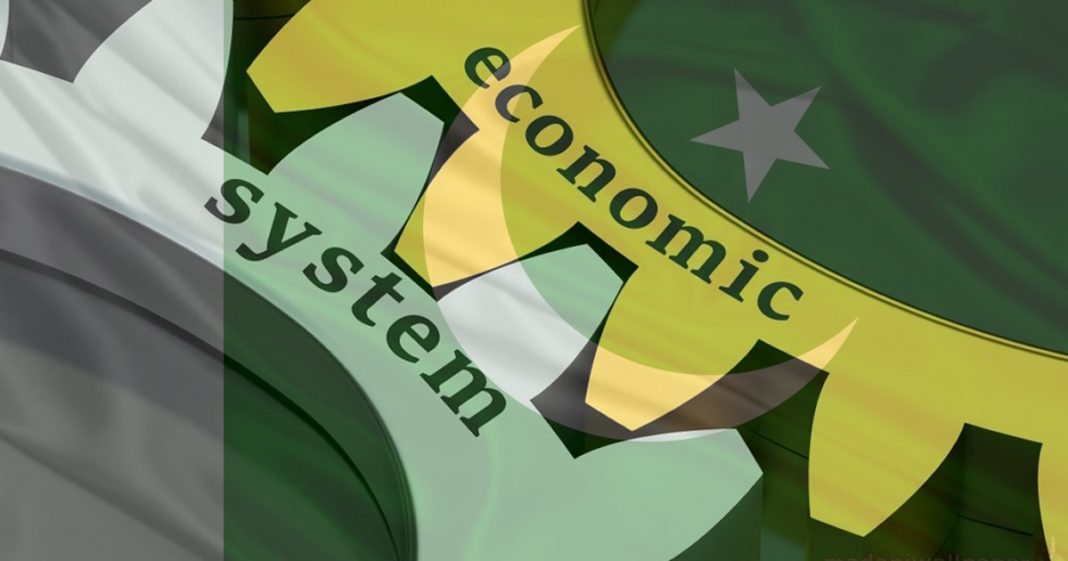Sustained economic growth has remained, for the most part, elusive for Pakistan. When we seek growth, we tend to focus on policy formation and the role of the government, but perhaps we need to adjust our lens and question the large footprint of the public sector in our policymaking landscape, along with the reliance on brick-and-mortar reforms and foreign aid.
As a far more viable alternative, uplifting local businesses and fostering competitive markets with openness can bring forward champions and lead to much-needed investments. This is one of the key takeaways from the PIDE Reform Agenda, which we will draw upon heavily in this article.
The fallacies of the HAQ/HAG Model
For the last 60 years, Pakistan has been following a project-based growth model that relies heavily on foreign borrowing. Known as the HAQ/HAG Model by Pakistan’s economist Dr. Mahbub ul Haq and the Harvard Advisory Group (Haq/HAG).
While this may have held some weight back in the day, it is largely obsolete now, yet it has continued to shape our policy, basing it around three things including building physical (‘brick and mortar’) projects; 5year plans to justify the projects; seeking foreign aid given the urgent need to build beyond domestic resources.
This hardware-based approach has led to the neglect of software i.e. capacity building, management, and optimizing yield on assets. Even today, 80% share of development spending is ‘brick and mortar’ (Pasha, 2012, Haque, 2020).
Read More: Revolutionizing Pakistan through austerity and entrepreneurship
As shown by our index of economic freedom scores, the Pakistani economy has been mostly unfree since the inception of the Index in 1995. Any GDP growth we have managed has been primarily a result of exports of cotton textiles. This gives us sufficient evidence of what the economy needs in order to remain stable.
Rather than allowing foreign donors to be our crutches, we need to support our local exporters, investors, and thought leaders. It comes as no surprise that private investment has been declining in Pakistan for several years, given how rapidly private investors have been losing confidence in the economy.
We have published a detailed critique on foreign aid in the past, but to reiterate, foreign aid in Pakistan erodes the quality of governance by increasing corruption, weakening accountability, and limiting policy learning. Bureaucracy uses the aid agencies to line up jobs post-retirement and is generally compromised in negotiating a fair deal for Pakistan.
The alternative
Foreign aid programs should have been considered only as a temporary and short-term development tool, yet they were allowed to balloon into much larger bodies and dominate the policy landscape in Pakistan. The approach to development has been imperial rather than people-oriented, and this must change.
Read More: Whats wrong with Pakistan’s Growth Recipe!
Our policies must be geared towards uplifting the local business community, exporting sectors, and SMEs. As the world moves forward in technological up-gradation and value addition, our businesses remain unprofitable, as all the time and energy gets used up in meeting high tariffs, as well as complicated regulations.
It is no surprise that Pakistan ranks low in the ease of doing business and competitiveness indices, as many potential startups are burdened by overregulation that hinders them from taking off. Furthermore, archaic technology, lack of policy continuity, and redundant business practices are likely to persist as long as we keep donor agencies on a pedestal and neglect our business community.
Enhanced trade competitiveness leading to an increase in exports is undoubtedly a sustainable path to economic growth, as, unlike aid, it is not tied up in any form of liability. The earnings through exports serve as a valuable inflow to the economy and paired with remittances, these amounts will be the forces that can eventually pull Pakistan out of its current account deficit. Some ways to enhance our trade competitiveness are diversification, improved quality, and integration into global value chains.
The unprofitable nature of the economy is exacerbated by unreasonable anti-export biases including tariffs and duties, leaving firms in a quandary as exorbitant amounts have to be set aside to meet these requirements. The textile sector remains under immense pressure to maintain a heavy chunk of Pakistan’s exports, and therefore must be considered critical for Pakistan’s economic prosperity.
In this regard, its challenges should be tackled head-on. These include a number of barriers: the lack of access to the latest seed technology for cotton farmers, high tariffs banning entry into value-added sectors and product diversification, and the fragmented nature of the textile chain which must be streamlined through new infrastructure.
The Haq/HAG model was framed in the time when funding and physical capital development were considered to be the defining features of the growth process.
The PIDE Reform Agenda
The PIDE Reform Agenda outlines key factors that will hold weight in today’s fast-paced environment, with key takeaways from countries that have maintained an exemplary path to development.
Read More: Pakistan on-track to become 23rd biggest economy, US intelligence
The key factors include Fostering competitive markets with openness; The state’s role is limited to defining rules of the market and regulating fair play, allowing winners and losers to emerge without keeping alive obsolete industry through subsidy and protection (North, 1991); Ideas and innovation from thought and research, this necessitates an open and tolerant society which the state must maintain, and lastly, a culture of competition, discipline, and risk-taking leading to entrepreneurship and opportunity (Mccloskey, 2013).
The government and the private sector must operate hand-in-hand, and engage with universities for specific research outcomes. The PIDE agenda proposes that at least 5% of the PSDP must be used on research for the government university collaborations.
Tax and documentation should be redesigned to facilitate transactions and entrepreneurship. Archaic regulations and taxes have only served to hinder entrepreneurship, so alternative technologies must be adopted as they offer an opportunity to mainstream an intelligent research-based approach.
PIDE has looked at cities as agents for growth, along with asset classes, commodities, products, firms, and people. The formula for growth has long been established: give the vibrant young people quality education, new ideas, and high ideals, strive for institutions that support free and fair markets, create a professional, well trained civil service, achieve economies of scale through a large domestic market and open up for trade and investment; and, keep public spending on infrastructure and social sectors limited and focused only to critical and essential projects (Buiter and Rahbari, 2011).
Technological advancement worldwide provides another challenge as we struggle to keep pace with the world, but opportunities also abound as we can achieve milestones once high-speed internet becomes accessible to all.
The internet access would prove useful in raising the literacy rate through online education to the deprived ones, providing health advice remotely in far-flung areas, enabling farmers and handicraft manufacturers to connect wholesalers and retailers directly in cities without the intervention of middlemen, and providing freelancing opportunities to many more, accelerating e-commerce.
Implementing these core ideas in Pakistan’s context requires us to rethink our goals. These must be realistic and sustainable, designed to support a long-term strategy that creates opportunities for all citizens.
According to PIDE, to achieve the target of 7-9% percent annual GDP growth over a sustained period of 30 years the economy must generate jobs for around 2.0 million entering the labor force annually.
Read More: PM IK to set up 60 Technology Parks and targets $10bn in IT exports in 2 years
Redefining the government’s role is essential, but this is not to deny that the government is at the center of the economy and must change first and foremost, in order to make the rest of the country change.
PIDE recommends that a digital research-oriented government be initiated from the PM and the cabinet to the lowest level. Furthermore, the effort to mainstream R&D everywhere in Pakistan is a central aspect of this policy.
Mr. Shahid Sattar, now Executive Director & Secretary General of All Pakistan Textile Mills
Association (APTMA), has previously served as Member Planning Commission of Pakistan and an advisor to the Ministry of Finance, Ministry of Petroleum, Ministry of Water & Power. Eman Ahmed is a Research Analyst at APTMA. The views expressed by the writers do not necessarily represent Global Village Space’s editorial policy.














